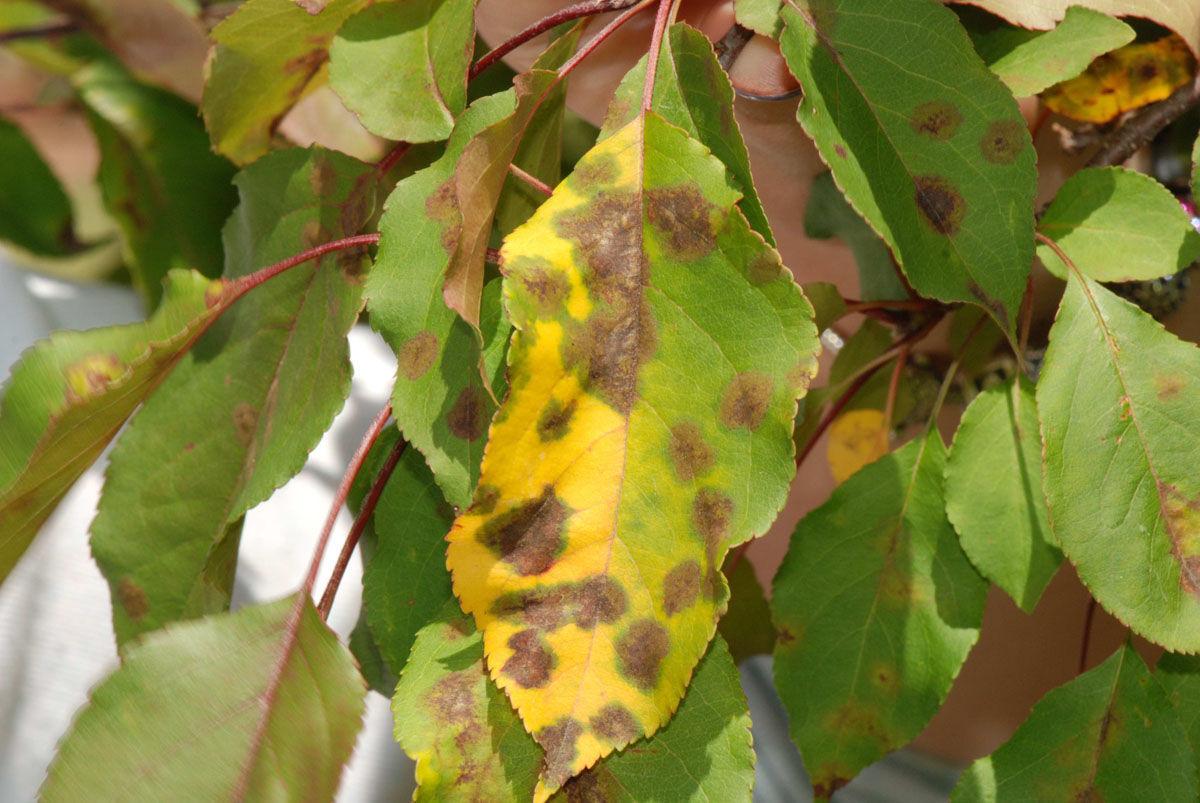
Stuart Hawbaker Crabapple scab causes leaves to drop early
Physical description Crabapple trees are stiffer in form and spinier than the common apple. The plants are deciduous and often have attractive fall foliage. The simple ovate leaves are serrated along the margins and are borne alternately along the twigs.
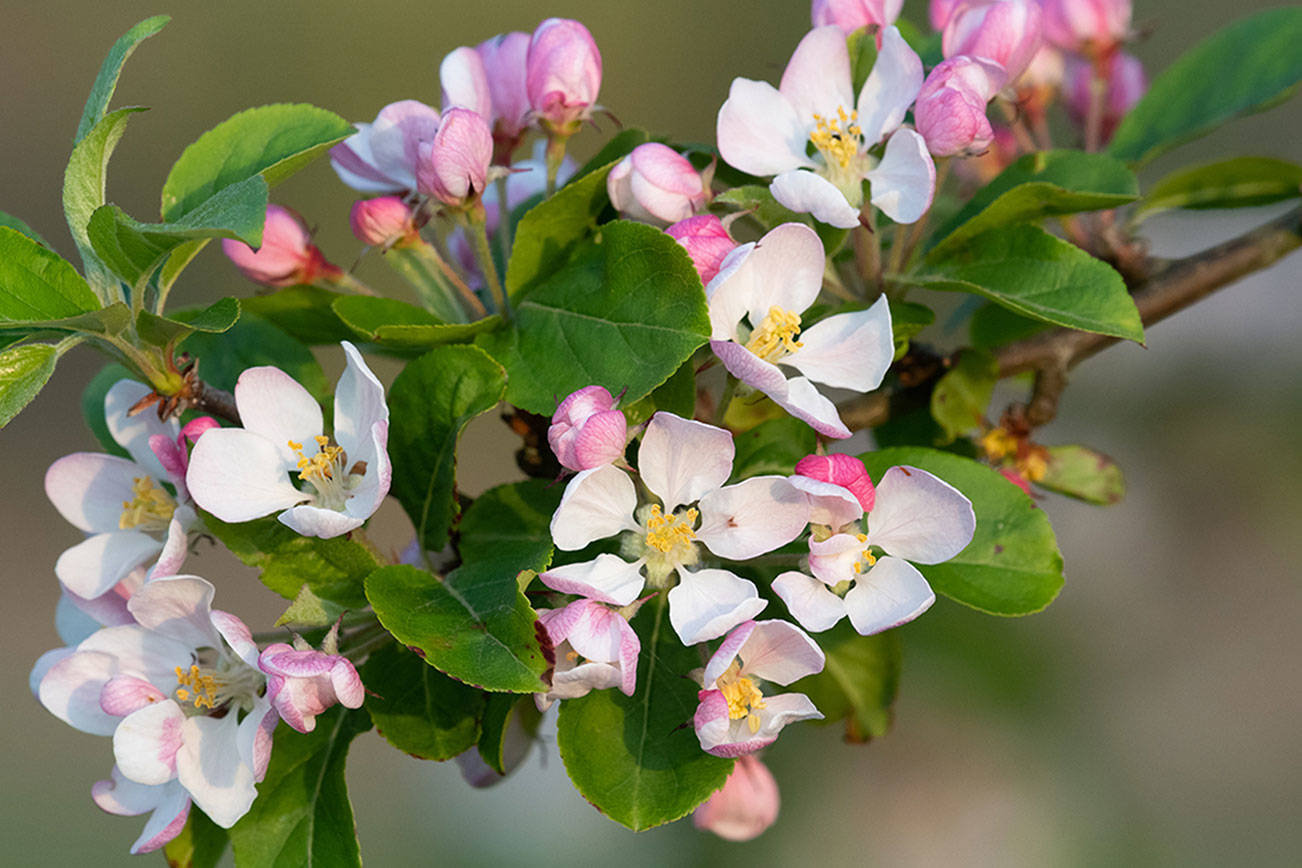
Six flowering crabapple trees you can fall in love with
Crabapple 'Royalty', Crab Apple 'Royalty'. One of the very best crabapples for dark purple foliage, Malus 'Royalty' is a dense, spreading deciduous tree with ovate dark purple leaves, turning vivid red in the fall. Masses of fragrant, purplish-red, single flowers appear in pretty clusters in mid-spring. They are followed by abundant, very.

Malus hybrids (Crabapples, Flowering Crabapple) North Carolina
Family: Rosaceae (rose) Click on images of Crabapple to enlarge. Deciduous. There are many varieties (over 700 cultivars). Heights that range from 15 - 45 ft. Crown can be very busy and produce many twigs. Flowers in the early spring. Often grown as an ornamental tree. Edible fruits are small red in color (usually), often very sour.

Crabapple Trees Archives Knecht's Nurseries & Landscaping
Plant Type: Deciduous Tree Hardiness Zones: 4-8 (USDA) Sun Exposure: Full sun to partial shade Soil Type: Well-draining soil Soil pH: 6.0-7.0 (slightly acidic to neutral) Maturity: 20-30 years Height: 20-30 feet Spacing: 15-20 feet Bloom Time: Spring Flower Color: White, pink, red, purple Native Area: North America, Europe, and Asia
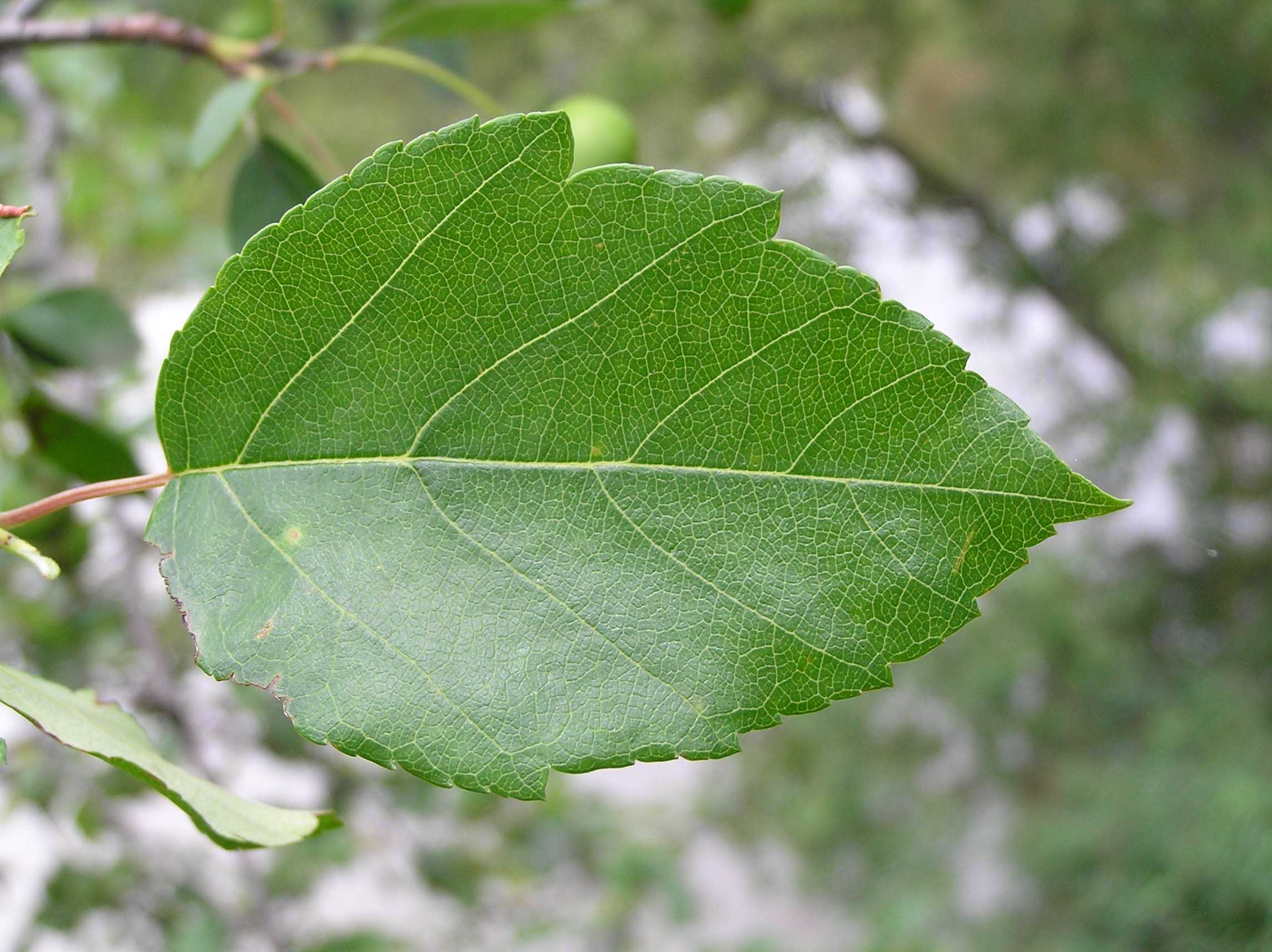
Prairie Crabapple Purdue Fort Wayne
Malus angustifolia, also known as southern crabapple, narrow leaf crabapple, or wildcrapple ³ is a member of the rose family (Rosaceae) and is a eudicot. Southern crabapple is a small tree that typically grows to be between 20 and 35 feet tall ². Its trunk reaches 8 to 10 inches in diameter ¹. Its 1 to 3 inch leaves are oblong with a blunt.

American Crabapple
The crabapple is a small, deciduous tree found primarily in the temperate zone of the Northern Hemisphere. These trees typically grow to be 4-12 m tall, and possess distinct white, pink, or red petals when in bloom. Crabapples are self-sterile, and thus completely rely on insect pollinators to transport their pollen.
crabapple leaf identification
Floweirng crabapple trees have showy spring flowers and brightly colored fruit from late summer through fall. Many grow 15 to 20 feet tall and wide, but there are also smaller dwarf varieties.. good fall leaf color, and attractive fruit. Even better, they resist apple scab and other common diseases that have beset crabapples in the past.

southern crabapple, Malus angustifolia (Rosales Rosaceae) 0008320
What Does Crabapple Tree Look Like? How To Identify Crab Apple Trees? The crab apple trees grow near hedges, along the river banks, and the woodlands. They desire nutrient-rich soil with high levels of lime and alkalinity. Crabapples are prevalent in areas with high moisture and direct sunlight.
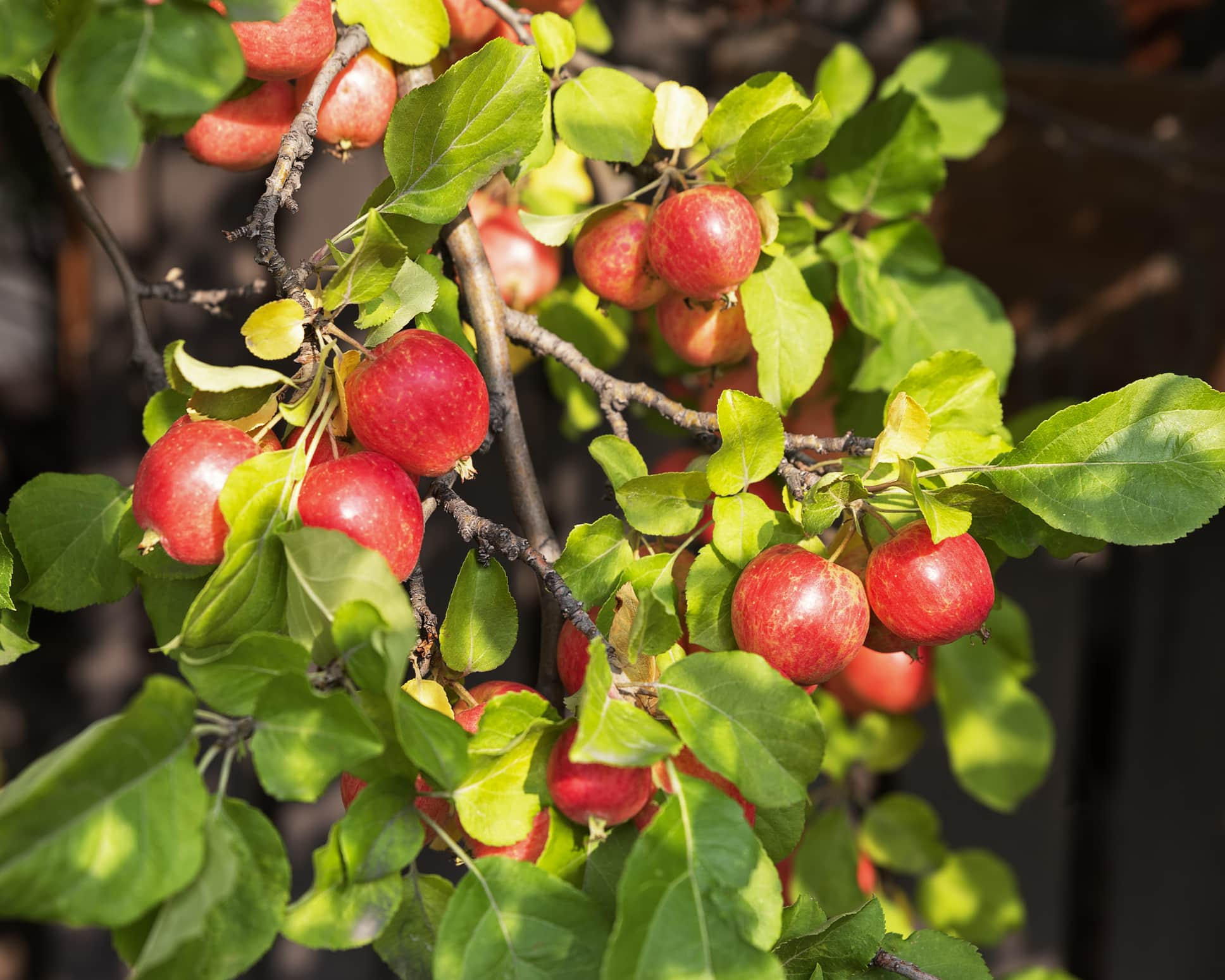
Callaway Crabapple Tree Just Fruits and Exotics
March 16, 2022 by americangardener The Crabapple trees can be divided into two broad types, those typically grown for their fruit crop and those grown primarily for their showy springtime flowers. Crabapple fruit is green or red. Some species and cultivars have orange and pink blushes.
Crabapple Tree Leaf Damage r/arborists
What if they never even KNEW? My ebook, The Edible Front Yard Garden will show you how! What is a Crabapple? A member of the Malus genus, these trees are related to the standard orchard apple that you're familiar with. A flowering crabapple shows off every spring with beautiful blossoms and does not fruit.

crabapple leaf identification
Malus ( / ˈmeɪləs / [3] or / ˈmæləs /) is a genus of about 30-55 species [4] of small deciduous trees or shrubs in the family Rosaceae, including the domesticated orchard apple, crab apples and wild apples . The genus is native to the temperate zone of the Northern Hemisphere . Description Flowering crabapple blooms

Crabapple ‘Robinson’ The Home & Garden Center
Crabapples are small deciduous trees native to temperate Asia and North America. In the spring, the trees are covered with pretty pink or white blossoms that often have amazing fragrances. Most crabapples are edible to some degree, depending on the size and sweetness of the fruit.
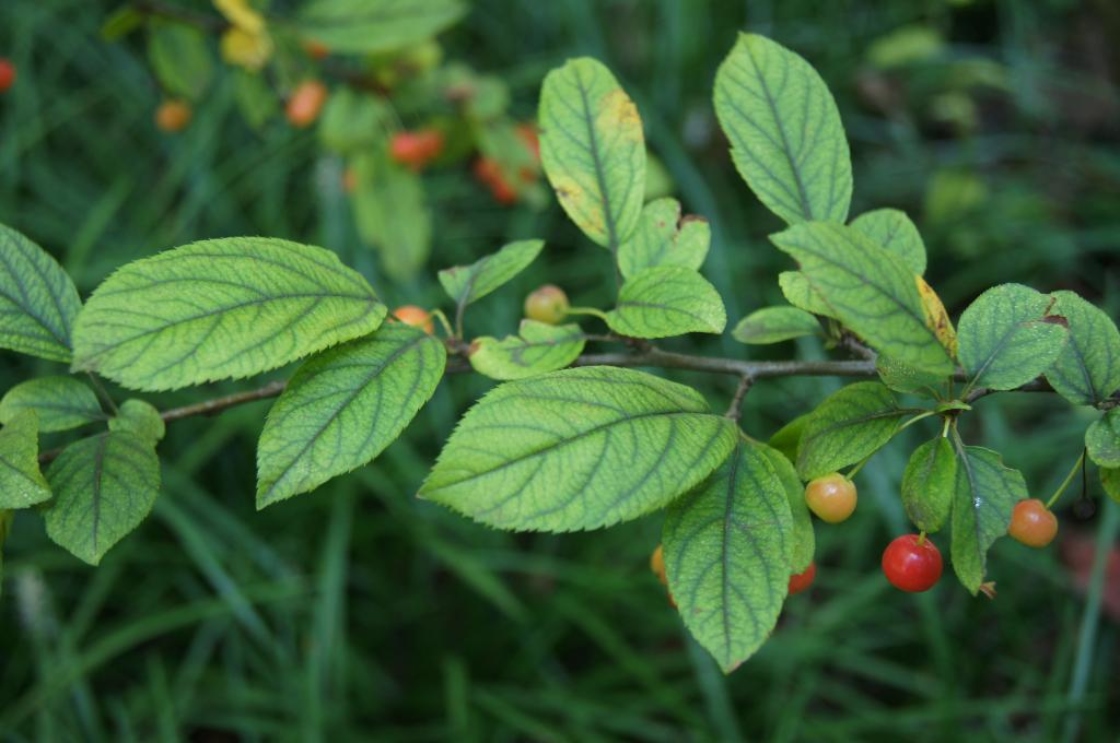
Sargent’s crabapple The Morton Arboretum
Flowering crabapples ( Malus spp.) are ornamental trees that produce showy blossoms and brightly colored fruits. Their fruits usually aren't sold by grocery stores, but you can grow and harvest crabapples from your tree to eat or add to recipes.

13 Stunning Crabapple Trees That Add LongLasting Color to Your
Crabapple trees have oval, green, serrated leaves that grow alternately on the branch and turn vibrant colors in autumn. Thorns may be present. In spring, the tree is covered in flowers ranging from white to purple and red. Clustering fruits form in summer and often remain on the tree into winter.
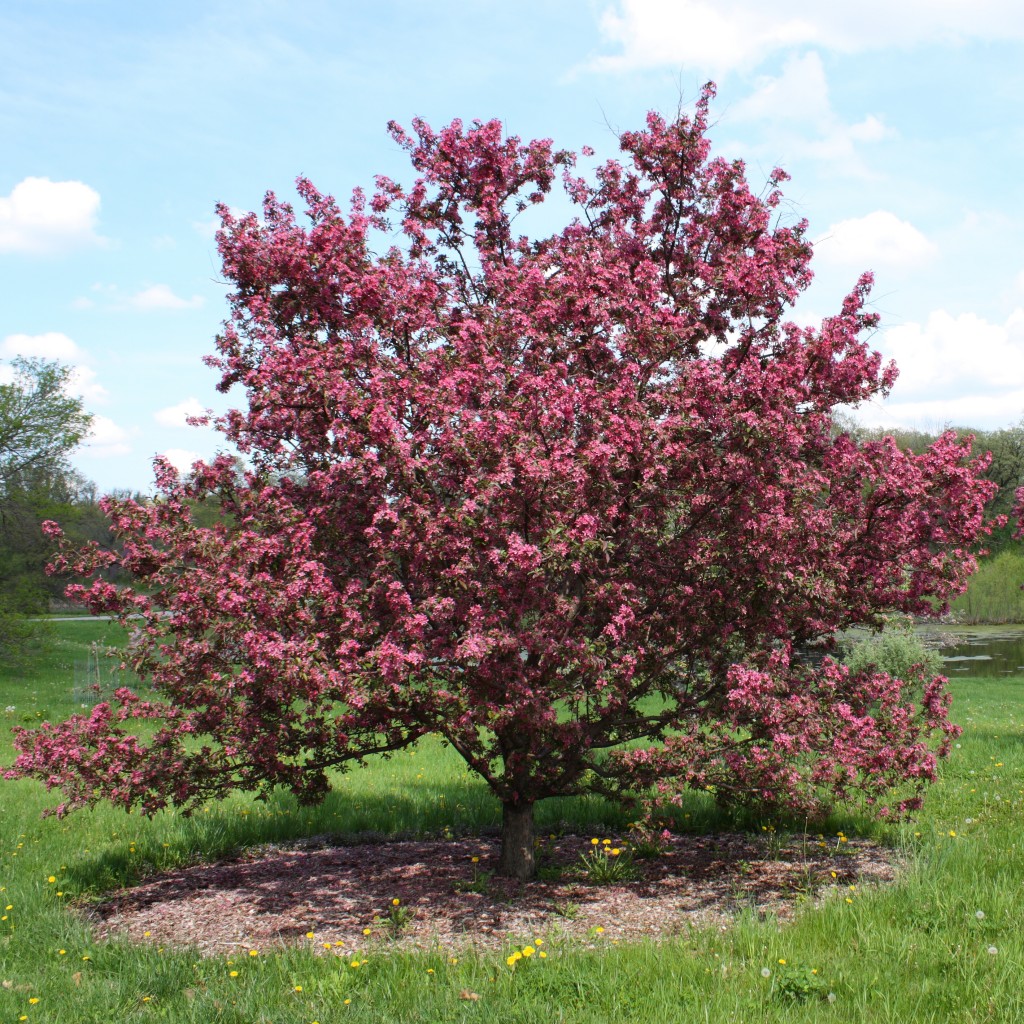
How to Grow Crabapple Growing and Caring for Flowering Crabapples
Water well, and mulch. Be prepared to irrigate if necessary in the first year. Support is important when it comes to crabapple tree care. A 4ft (1.2m) tree stake knocked in at an angle, with the tree tied to its stake about 2ft (60cm) above the ground is ideal. Check tree ties regularly and tighten if necessary.
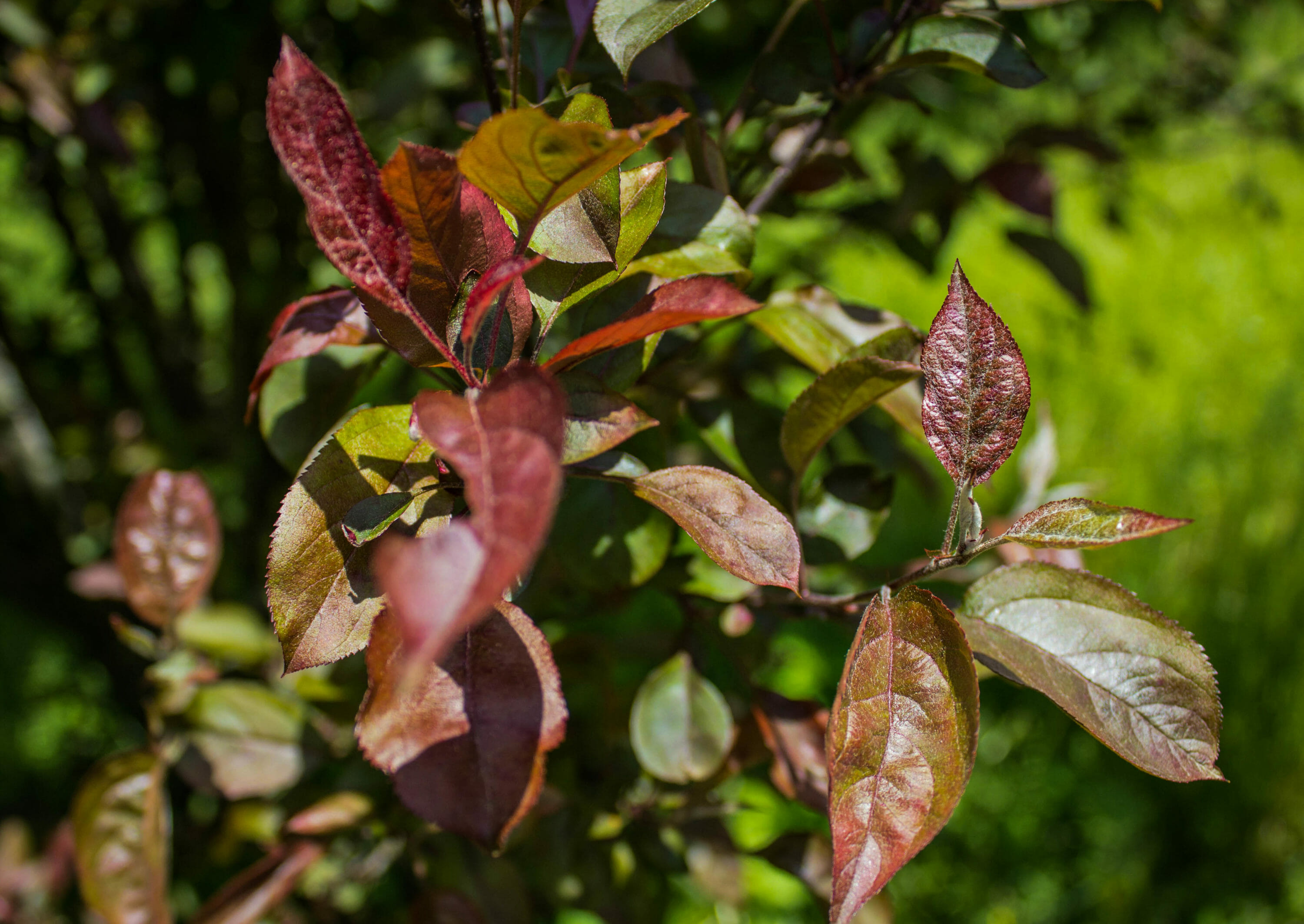
Prairie fire crabapple foliage Halka Nurseries
Crabapple trees (botanical name Malus) are like miniature apple trees ( Malus domestica ). The smallest crabapple trees can be small shrub-like bushes around 4 ft. (1.2 m) tall. Larger crabapples can grow to between 20 and 30 ft. (6 - 9 m). Most crabapple trees thrive in zones USDA 4 through 8.